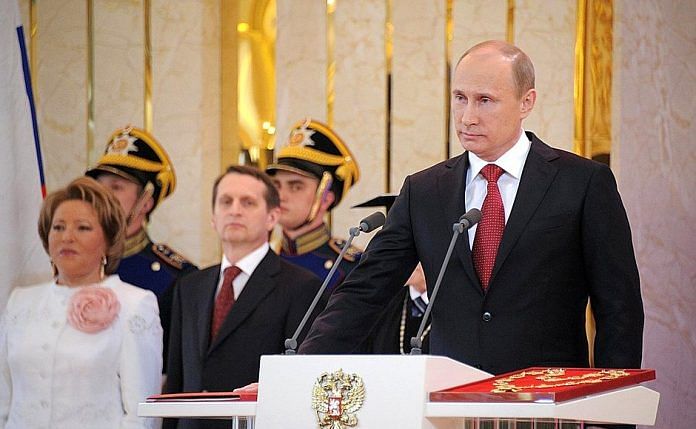In her magnum opus, ‘The Future is History’, Russian-American journalist Masha Gessen seeks to describe what she sees as Russia’s return to totalitarianism.
Spanning an entire generation, the book is a grand feat in research and investigation into a nation Winston Churchill described as “a riddle wrapped in a mystery inside an enigma”.
An ethnographic study, it follows the lives of seven individuals, delving deep into their personal histories. The book follows four of them as they grow up, and introduces the other three, a sociologist, a psychologist and an activist, when they are in the middle of their careers.
Of the four, one is gay, a persecuted community at the receiving end of several hate crimes in Russia; another is the grandson of a Russian oligarch; the third is the daughter of a popular politician; and the fourth, the daughter of an enterprising single mother. Gessen weaves them in and out of the narrative, using their personal experiences to take readers through Russian life.
The overarching theme is that all these people are trying to make sense of the structures they find themselves in. The three older people are trying to contribute to building the intellectual structures they think are imperative for Russian society to flourish. The four younger ones are simply growing up in confusing times, and the reader has the privilege of seeing exactly how the state morphs their personalities and purposes.
Gessen, a vocal critic of Russia’s recently re-elected President Vladimir Putin, essentially weaves their stories into a timeline of the changes Russia has been going through since the 80s, with a special emphasis on political activism, sociology, and LGBTQ+ rights. She chronicles Russia’s evolution through the turbulent times before and after the split of the USSR in 1991, as it grapples with global dynamics and opens up to try and adapt but never really gets there. Her book is the search for an answer as to why that doesn’t happen through a careful examination of the state apparatus, and its effect on people.
Her book also paints a picture of contemporary Russia, both through her own experiences in her home country and the experiences of the characters. Under her gaze, the country seems to be in throes of a massive identity crisis. Her book serves as a fortochka (a tiny Russian window used for ventilation during cold winters) into the Russia she is familiar with, and the Russia that she sees emerging from the current political climate.
The main thrust of Gessen’s claim is that Russia is totalitarian again, which one is likely to believe purely from reading her work. However, she wildly grasps at completely different threads of thoughts heading off into divergent tangents before somehow connecting them to her overriding narrative about the ‘Homo Sovieticus’ and the state of a Russian citizen today.
The details her book goes into is exhaustive, as she carefully considers the lives of her dramatis personae. Yet, she doesn’t give Putin-supporters enough attention: and doesn’t completely look the mechanics of how that side of Russian society functions. Of course, Gessen’s premise is that any approbation towards Putin is a manufactured result of the regime that society is within, but it is still an avenue that should have been explored better. It is a glaringly missing voice in an otherwise representative chorus.
Gessen, much like the people she’s trying to write about, is attempting to make sense of the changing structures in Russia: a shapeless beast, of sorts, that is simply growing unchecked. The bleak picture the book paints echoes the sad reality of many societies in today’s times, stuck under authoritarian leaders. It is an astonishing feat of work and research that sheds a bit more light on the issues the country grapples with.
With Putin’s re-election as President on March 18, Gessen’s book is timely. She has picked up on a certain rhythm, however faint, that Russia is currently pulsating to. It does read like the opinion of an impassioned citizen, a loud shout to her country’s peoples that they need to take notice of. But it is no easy task, as the book reflects.
‘The Future is History: How Totalitarianism Reclaimed Russia by Masha Gessen’ has been published by Riverhead Books. Journalist Masha Gessen won the National Book Award in 2017 for this book.



